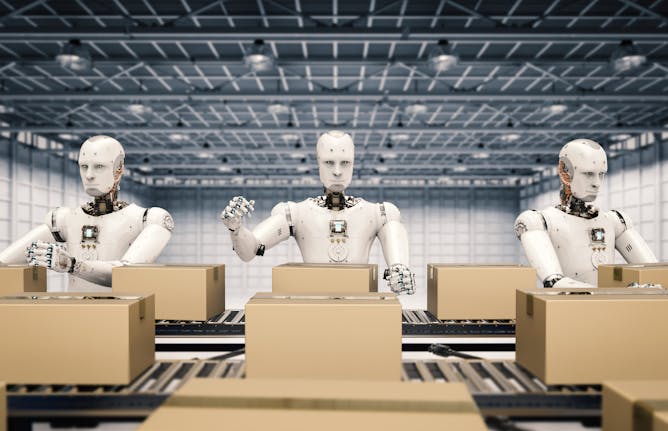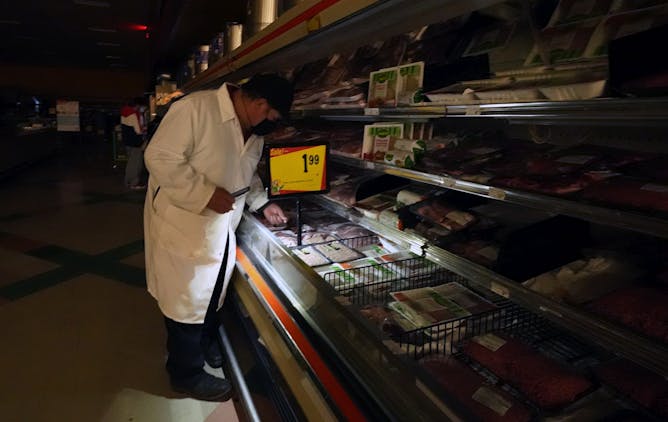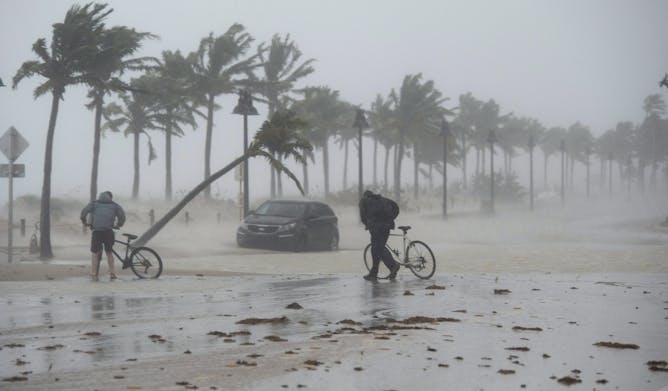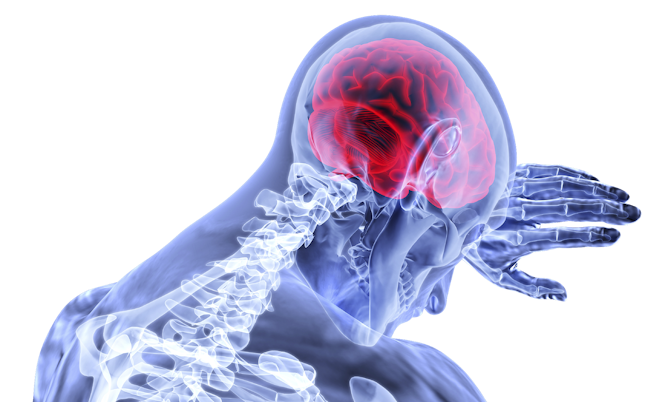|
One of the biggest anxieties about the so-called impending robot revolution is the threat they pose to human jobs. As artificial intelligence, robots and autonomous machines become more ubiquitous in our lives, this underlying insecurity should be addressed.
Today, in The Conversation Canada, Joshua Marshall from Queen’s University points out that although Canada has an AI strategy, it doesn’t have a robotics strategy. Marshall writes that contrary to popular belief, companies that use robot labour have actually hired more humans in new and emerging roles. The government should implement an approach that combines education and research to ensure this transition in the workforce is supported.
Also today:
Regards,
|
Nehal El-Hadi
Science + Technology Editor
|

|
|

The future of automated labour may not spell the end of human employment.
(Shutterstock)
Joshua A. Marshall, Queen's University, Ontario
As the use of robots and autonomous machines increases across industries, governments need to have a strategy in place. The labour force will transition out of automated tasks into new jobs.
|

Nearly five million homes and businesses lost power in Texas on Feb. 15, and millions remained without power throughout the week.
(AP Photo/LM Otero)
Michael D. Mehta, Thompson Rivers University
The weather-related impacts of climate change will increasingly threaten critical infrastructure in the future. Shifting electricity grids towards microgrids could help.
|

Students often carry the bulk of the burden to combat systemic racism on campus.
(GoToVan/Flickr)
Natalie Delia Deckard, University of Windsor; Ayesha Mian Akram, University of Windsor; Jane Ku, University of Windsor
Given this evidence of historical anti-racist work at universities, administrators can no longer claim to lack the knowledge of what needs to be done.
|

Two people walk their bicycles along a flooded street on the waterfront of Fort Lauderdale, Fla., as Hurricane Irma passes through on Sept. 10, 2017.
THE CANADIAN PRESS/Paul Chiasson
Anya M. Waite, Dalhousie University; Brad deYoung, Memorial University of Newfoundland; Chris Milley, Dalhousie University; Ian G. Stewart, University of King's College
Economic recovery and carbon neutrality are linked. Both depend on the ocean's ability to continue to regulate climate.
|

In this July 2020 photo, former president Donald Trump stands at the Mount Rushmore National Memorial in South Dakota.
(AP Photo/Alex Brandon)
Ronald W. Pruessen, University of Toronto
As Donald Trump prepares to address the Conservative Political Action Conference, known as CPAC, here's how other former presidents have occupied their time after leaving the White House.
|
La Conversation Canada
|

Les AVC ischémiques sont causés par une interruption du flux sanguin au cerveau.
VSRao de Pixabay
Ahlem Zaghmi, Institut national de la recherche scientifique (INRS); Marc A Gauthier, Institut national de la recherche scientifique (INRS)
Un nouveau traitement pourrait permettre de préserver les capacités motrices des patients qui ont subi un AVC. Il pourrait changer les stratégies médicales pour d’autres maladies neurodégénératives.
|

Lors d'une pandémie, les vaccins sont très attendus et tout problème de pénurie menace la chaîne d'approvisionnement.
Shutterstock
Paula Larsson, University of Oxford
En 1959, trois hommes armés ont fait irruption à l'Institut de microbiologie de l'Université de Montréal et ont dérobé 75 000 flacons d'un vaccin contre la polio. Avons-nous appris de cet événement ?
|
|
|
Business + Economy
|
-
Monica Orisadare, Obafemi Awolowo University
Ngozi Okonjo-Iweala's appointment as the first woman and the first African director general of the World Trade Organisation is a win for women globally.
|
|
Health
|
-
Samantha Carlson, Telethon Kids Institute; Christopher Blyth, University of Western Australia; Lucy Deng, University of Sydney; Margie Danchin, Murdoch Children's Research Institute; Nicholas Wood, University of Sydney
Years of vaccine research tells us that, if side effects are going to occur, they normally occur within the first months after getting a vaccine.
|
|
| |
| |
| |
| |

|
| |
| |
| |
| |
| |
| |
| |
| |
|
|